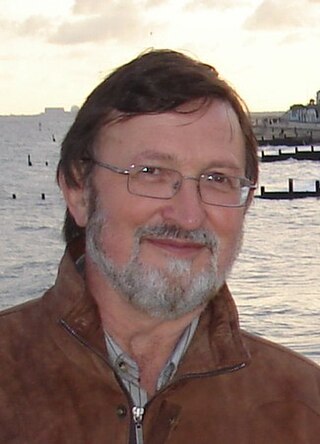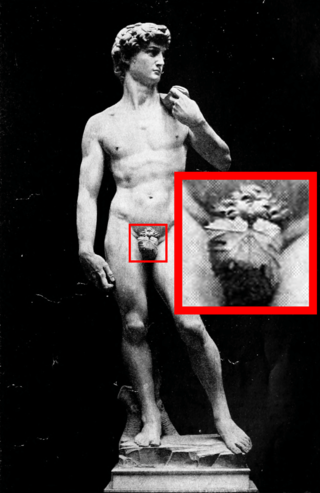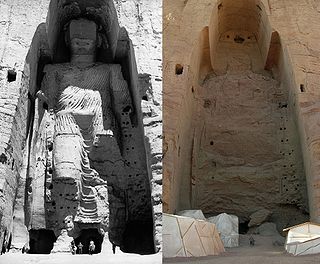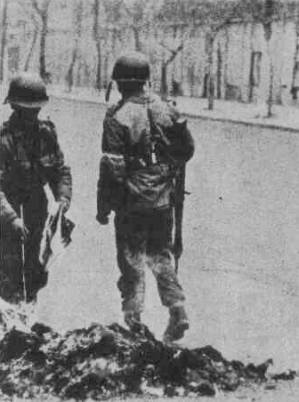Related Research Articles

Judith Blume is an American writer of children's, young adult, and adult fiction. Blume began writing in 1959 and has published more than 26 novels. Among her best-known works are Are You There God? It's Me, Margaret. (1970), Tales of a Fourth Grade Nothing (1972), Deenie (1973), and Blubber (1974). Blume's books have significantly contributed to children's and young adult literature. She was named one of the 100 most influential people in the world by Time magazine in 2023.

Sir Ahmed Salman Rushdie is an Indian-born British-American novelist. His work often combines magic realism with historical fiction and primarily deals with connections, disruptions, and migrations between Eastern and Western civilizations, typically set on the Indian subcontinent. Rushdie's second novel, Midnight's Children (1981), won the Booker Prize in 1981 and was deemed to be "the best novel of all winners" on two occasions, marking the 25th and the 40th anniversary of the prize.
The Satanic Verses are words of "satanic suggestion" which the Islamic prophet Muhammad is alleged to have mistaken for divine revelation. The first use of the expression in English is attributed to Sir William Muir in 1858.

The Satanic Verses is the fourth novel of British-Indian writer Salman Rushdie. First published in September 1988, the book was inspired by the life of the Islamic prophet Muhammad. As with his previous books, Rushdie used magical realism and relied on contemporary events and people to create his characters. The title refers to the Satanic Verses, a group of Quranic verses about three pagan Meccan goddesses: Allāt, Al-Uzza, and Manāt. The part of the story that deals with the satanic verses was based on accounts from the historians al-Waqidi and al-Tabari.

Hari Mohan Nath Kunzru is a British novelist and journalist. He is the author of the novels The Impressionist, Transmission, My Revolutions, Gods Without Men, White Tears and Red Pill. His work has been translated into twenty languages.

Theodoor "Theo" van Gogh was a Dutch film director. He directed Submission: Part 1, a short film written by Somali writer and politician Ayaan Hirsi Ali, which criticised the treatment of women in Islam in strong terms. On 2 November 2004, he was murdered by Mohammed Bouyeri, a Dutch-Moroccan Islamist who objected to the film's message. The last film Van Gogh had completed before his murder, 06/05, was a fictional exploration of the assassination of Dutch politician Pim Fortuyn. It was released posthumously in December 2004, a month after Van Gogh's death, and two years after Fortuyn's death.

William Nygaard is the retired head of the Norwegian publishing company Aschehoug. He was also chairman of the Norwegian Broadcasting Corporation. He has two children.
"Cartoon Wars Part I" is the third episode in the tenth season of the American animated television series South Park. The 142nd episode of the series overall, it first aired on Comedy Central in the United States on April 5, 2006. It is the first part of a two-episode story-arc, which concludes with "Cartoon Wars Part II". In the episode, it is announced that a Family Guy episode will air with the Islamic prophet Muhammad as a character, leaving the whole of the United States fearing for their lives. Cartman apparently believes that the episode is offensive to Muslims and decides to go to Hollywood to try to get the episode pulled.

The Satanic Verses controversy, also known as the Rushdie Affair, was a controversy sparked by the 1988 publication of Salman Rushdie's novel The Satanic Verses. It centered on the novel's references to the Satanic Verses, and came to include a larger debate about censorship and religious violence. It included numerous killings, attempted killings, and bombings by perpetrators who supported Islam.

In mid-June 2007, Salman Rushdie, the British-Indian novelist and author of the novel The Satanic Verses, was created a Knight Bachelor by Queen Elizabeth II. Soon after the news of the knighthood was released protests against the honour were held in Malaysia and in Pakistan where effigies of the writer were publicly burnt. On 19 June 2007, governments in both Pakistan and Iran summoned their British ambassadors to officially protest against the award. While many groups and individuals have renewed the call to execute Rushdie, the author "is not commenting on the latest threats to his life. It is understood he is anxious not to inflame the situation". When asked by the Associated Press if his silence was at the request of the British government, Rushdie replied by e-mail stating "The British authorities have not asked me to do or not do anything. I have simply chosen to remain out of this storm for the moment. And nobody is turning anything down." The media noted in July 2007 that Rushdie "has not been seen in public since the 16 June announcement of his knighthood." However, he was photographed receiving his knighthood formally the next year at a ceremony which, breaking with tradition, was not announced in advance of his attendance.

Richard Webster was a British author. His five published books deal with subjects such as the controversy over Salman Rushdie's novel The Satanic Verses (1988), Sigmund Freud and psychoanalysis, and the investigation of sexual abuse in Britain. Born in Newington, Kent, Webster studied English literature at the University of East Anglia and lived in Oxford, England. He became interested in the problem of false allegations partly due to reading the work of historian Norman Cohn.

Censorship is the suppression of speech, public communication, or other information. This may be done on the basis that such material is considered objectionable, harmful, sensitive, or "inconvenient". Censorship can be conducted by governments, private institutions, and other controlling bodies.

The Cairo International Book Fair is the largest and oldest book fair in the Arab world, held every year in the last week of January in Cairo, Egypt, at Egypt International Exhibitions Center in New Cairo, it is organised by the General Egyptian Book Organisation. The Fair is considered the most important event in the Arabic publishing world.

Religious censorship is a form of censorship where freedom of expression is controlled or limited using religious authority or on the basis of the teachings of the religion. This form of censorship has a long history and is practiced in many societies and by many religions. Examples include the Edict of Compiègne, the Index Librorum Prohibitorum and the condemnation of Salman Rushdie's novel The Satanic Verses by Iranian leader Ayatollah Ruhollah Khomeini.

Nurkurniati Aisyah Dewi, better known as Nia Dinata, is an Indonesian film director. Her movies are known for tackling subjects controversial or "risky" in Indonesia such as homosexuality, migrant workers, and polygamy.

A Brief History of Blasphemy: Liberalism, Censorship and the Satanic Verses is a 1990 book by Richard Webster, in which the author discusses the controversy over Salman Rushdie's novel The Satanic Verses (1988). Webster critiques the freedom to blaspheme, and argues against The Crime of Blasphemy.
Book censorship is the removal, suppression, or restricted circulation of literary, artistic, or educational material on the grounds that it is morally or otherwise objectionable according to the standards applied by the censor. The first instance of book censorship in what is now known as the United States, took place in 1637 in modern-day Quincy, Massachusetts. While specific titles caused bouts of book censorship, with Uncle Tom’s Cabin frequently cited as the first book subject to a national ban, censorship of reading materials and their distribution remained sporadic in the United States until the Comstock Laws in 1873. It was in the early 20th century that book censorship became a more common practice and source of public debate. Throughout the 20th and early 21st centuries there have been waves of attempts at widespread book censorship in the US. Since 2022, the country has seen a dramatic increase of attempted and successful censorship, with a 63% rise in reported cases between 2022 and 2023, including a substantial rise in challenges filed to hundreds of books at a time. In recent years, about three-fourths of books subject to censorship in the US are for children, pre-teenagers, and teenagers.

Book censorship is the act of some authority taking measures to suppress ideas and information within a book. Censorship is "the regulation of free speech and other forms of entrenched authority". Censors typically identify as either a concerned parent, community members who react to a text without reading, or local or national organizations. Books have been censored by authoritarian dictatorships to silence dissent, such as the People's Republic of China, Nazi Germany and the Soviet Union. Books are most often censored for age appropriateness, offensive language, sexual content, amongst other reasons. Similarly, religions may issue lists of banned books, such as the historical example of the Roman Catholic Church's Index Librorum Prohibitorum and bans of such books as Salman Rushdie's The Satanic Verses by Ayatollah Khomeini, which do not always carry legal force. Censorship can be enacted at the national or subnational level as well, and can carry legal penalties. In many cases, the authors of these books could face harsh sentences, exile from the country, or even execution.

Islamic teachings and argument have been used to censor opinions and writings throughout history, up to and including the modern era, and thus there are many cases of censorship in Islamic societies. One example is the fatwa against The Satanic Verses, ordering that the author be executed for blasphemy. Depictions of Muhammad have inspired considerable controversy and censorship. Some Islamic societies have religious police, who enforce the application of Islamic Sharia law.
Muslim Writers Awards is an annual British award ceremony, which aims to recognise, showcase and celebrate literary talent within the UK's Muslim community. It was established in 2006, with the Young Muslim Award category established in 2010.
References
- ↑ Adams, Stephen (12 August 2008). "Suicide bomber novel 'censored' from Muslim writing competition, claims author Max Malik". London: The Daily Telegraph . Retrieved 13 January 2009.
- 1 2 3 Flood, Alison (13 August 2008). "Muslim Writers awards deny censorship of 'unpalatable' novel". The Guardian . London. Retrieved 13 January 2009.
- ↑ "Author's anger over 'censorship' of suicide bomber novel". 24dash.com. 13 August 2008. Retrieved 13 January 2009.